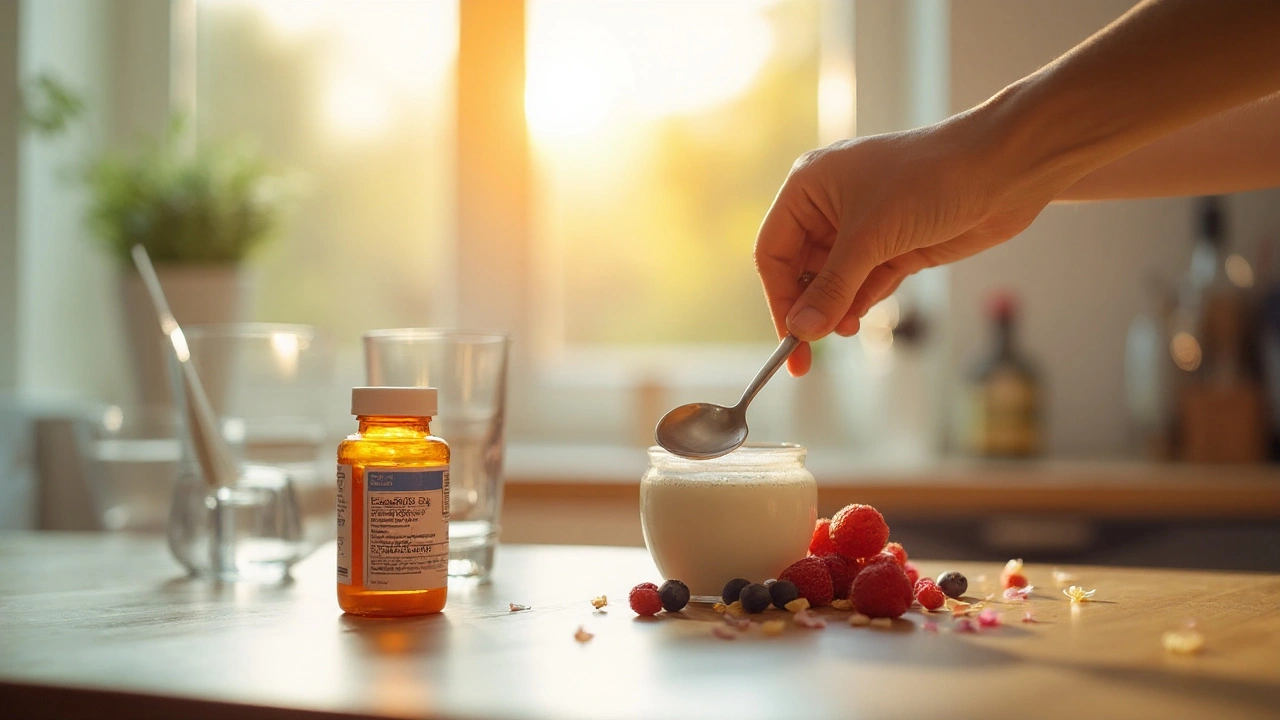Gut Health: Simple Steps to a Happier Digestive System
Gut health matters for energy, mood, immunity and digestion. Small changes to food, sleep and stress habits can make a big difference. Below are clear, practical tips you can try today and use with your doctor or pharmacist when needed.
Daily habits that actually help
Eat fiber every day. Vegetables, fruit, beans and whole grains feed good bacteria. Aim for a mix of soluble and insoluble fiber — think oats, apples, lentils and brown rice.
Add fermented foods. Yogurt, kefir, sauerkraut and kimchi bring live cultures that can settle well in many people. Start small if you aren’t used to them to avoid gas.
Cut down on added sugar and ultra-processed snacks. These can feed the wrong bacteria and cause bloating or inflammation over time.
Stay hydrated. Water helps move food and waste through the gut. Aim for steady intake across the day rather than large amounts at once.
Move regularly. A short daily walk or light exercise helps digestion and supports a healthy microbiome.
Supplements, meds, and tests — what to consider
Probiotics can help for certain issues like antibiotic-associated diarrhea or some IBS cases. Pick a product with clear strains listed and follow the dose on the label. If one brand doesn’t work after a few weeks, try another or ask a pharmacist for options.
Prebiotics (inulin, resistant starch) feed your good bacteria. You can get them from garlic, onions, bananas and cooked-cooled potatoes. Add them slowly to avoid gas.
Watch meds that change gut balance: broad-spectrum antibiotics, proton pump inhibitors (like pantoprazole/Protonix), and some pain relievers can alter your microbiome. Don’t stop prescribed meds without talking to your provider.
If you have persistent symptoms — severe bloating, blood in stool, unplanned weight loss, or ongoing diarrhea — see a doctor. They may order stool testing, breath tests for SIBO, or blood work to check for inflammation or infection.
Try a simple 2-week reset: cut processed foods, eat 2 servings of fiber-rich foods per meal, include a fermented food daily, sleep 7–8 hours, and move 20 minutes a day. Track symptoms and energy. If things improve, keep the habits. If not, bring your notes to a clinician.
MapleLeafMeds.com is a resource for learning about medications and supplements that affect digestion. Use it to compare options and get clear, practical info before talking to your doctor or pharmacist.
Small, consistent steps beat drastic changes. Start with one habit this week and build from there — your gut will thank you.

Fiber for GI Health: Soluble vs. Insoluble Choices
Learn how soluble and insoluble fiber work differently to support gut health, manage IBS and IBD, stabilize blood sugar, and improve mood through the gut-brain axis. Get practical food choices and dosing tips.
November 23 2025
Cefprozil with Probiotics - What You Need to Know
Explore whether cefprozil and probiotics can be taken together, the science behind their interaction, and practical tips for safe use.
September 23 2025
The Promising Future of Prebiotics: What's Next?
Prebiotics are gaining attention for their role in gut health and overall well-being. This article explores the future of prebiotics, including new developments, emerging trends, and practical tips for incorporating them into your diet. Discover how these beneficial compounds can support a healthy lifestyle.
September 4 2024